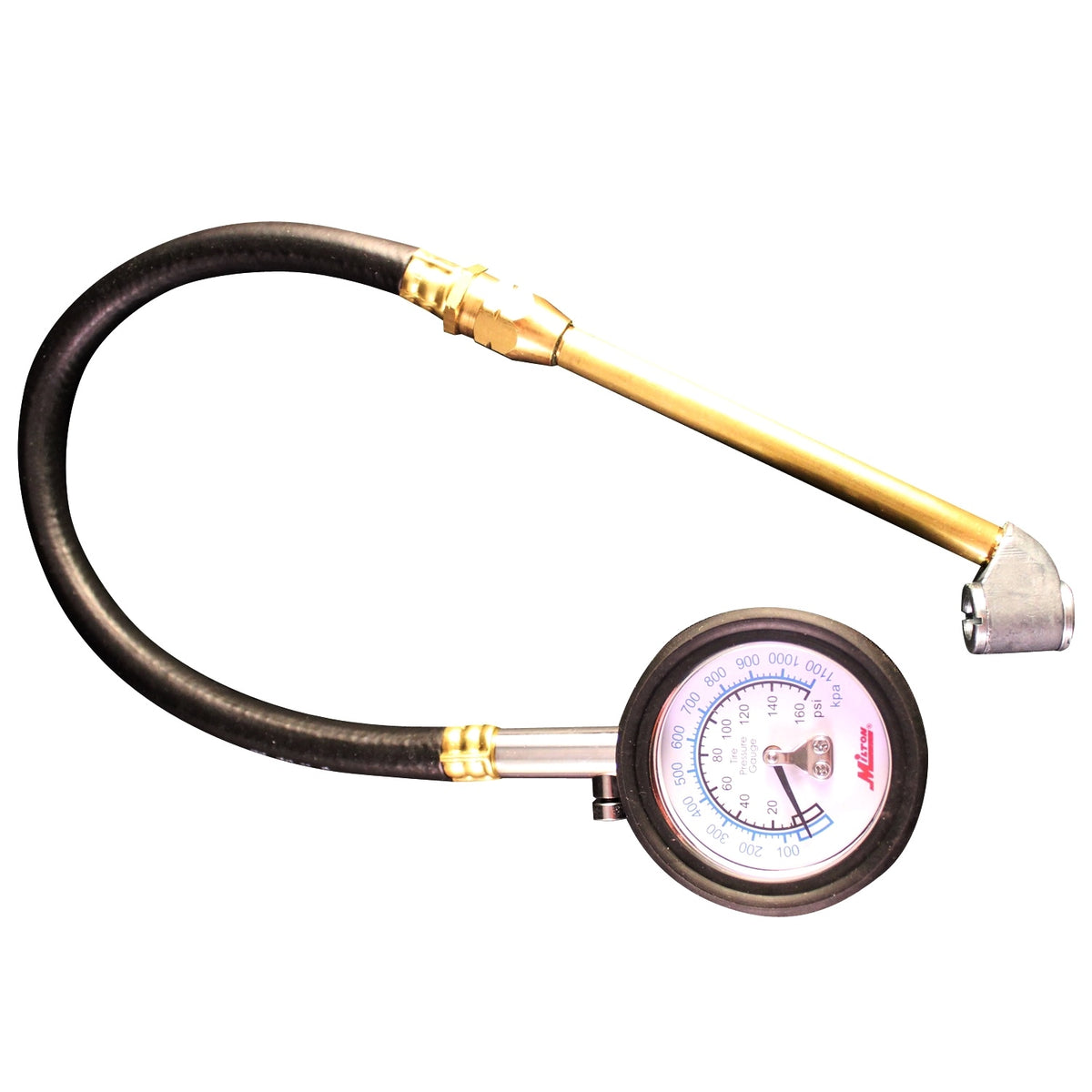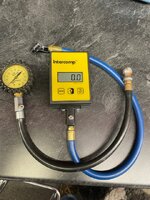First of all, Bourdon tube gauges are subject to accuracy problems with change of temperature. Grade "B" pressure gauges generally do not have any temperature compensation. Having calibrated thousands of grade "B" pressure gauges I would estimate that new ones meet their accuracy specifications slightly more than half the time (Ashcroft gauges were especially bad and hard to adjust). Grade "B" pressure gauges are pretty low quality devices and do not hold their accuracy very well. If you can find one, a grade "1A" pressure gauge is good for 1% of full scale over the entire range of the gauge. They are of better quality than the grade "B" gauges. Generally, bourdon tube gauges that are better than grade "1A" are expensive and a bit large for checking tires. I have calibrated numerous digital gauges and have found them to be much more reliable and more likely to pass calibration.
Here is a .5% digital gauge on Amazon. Even if it is out of tolerance and good for only 1% it would be accurate enough for tires.
I couldn't resist buying one of these when it went on sale for about half price.
Overall, it's a well-presented package, nicely-made, uses common AAA cells (lifetime TBD), and easier to read in a dim garage than the gauge I've been using (an old Accutire Pro, still sold as BMW 82-12-1-467-187 sans the zero calibration button).
I have a couple of those, which are consistent with each other, and a Michelin/Vigil analog gauge. The minor PSI scale on a VDO analog gauge isn't as precise, and makes it harder to compare, but is close as well. Some might consider the latter two "vintage" so they are mostly kept in a drawer, and not used as daily drivers.
The Etenwolf reads ~1 lb max lower than that group of gauges, so if its calibration cert is genuine [9.7 (10), 59.9 (60), 109.8 (110)], then I've been only slightly underinflating for a long time.
I also tested it against some truly vintage 60s/70s pencil gauges (one a Dunlop), and those were even farther off, more inconsistent from reading to reading, and not as pleasant to use in general.
As a practical matter, regular pressure checks already put one ahead of the game that most don't even play, so a pound or so off is more than acceptable, and for very accessible cost as well.

 miltonindustries.com
miltonindustries.com


